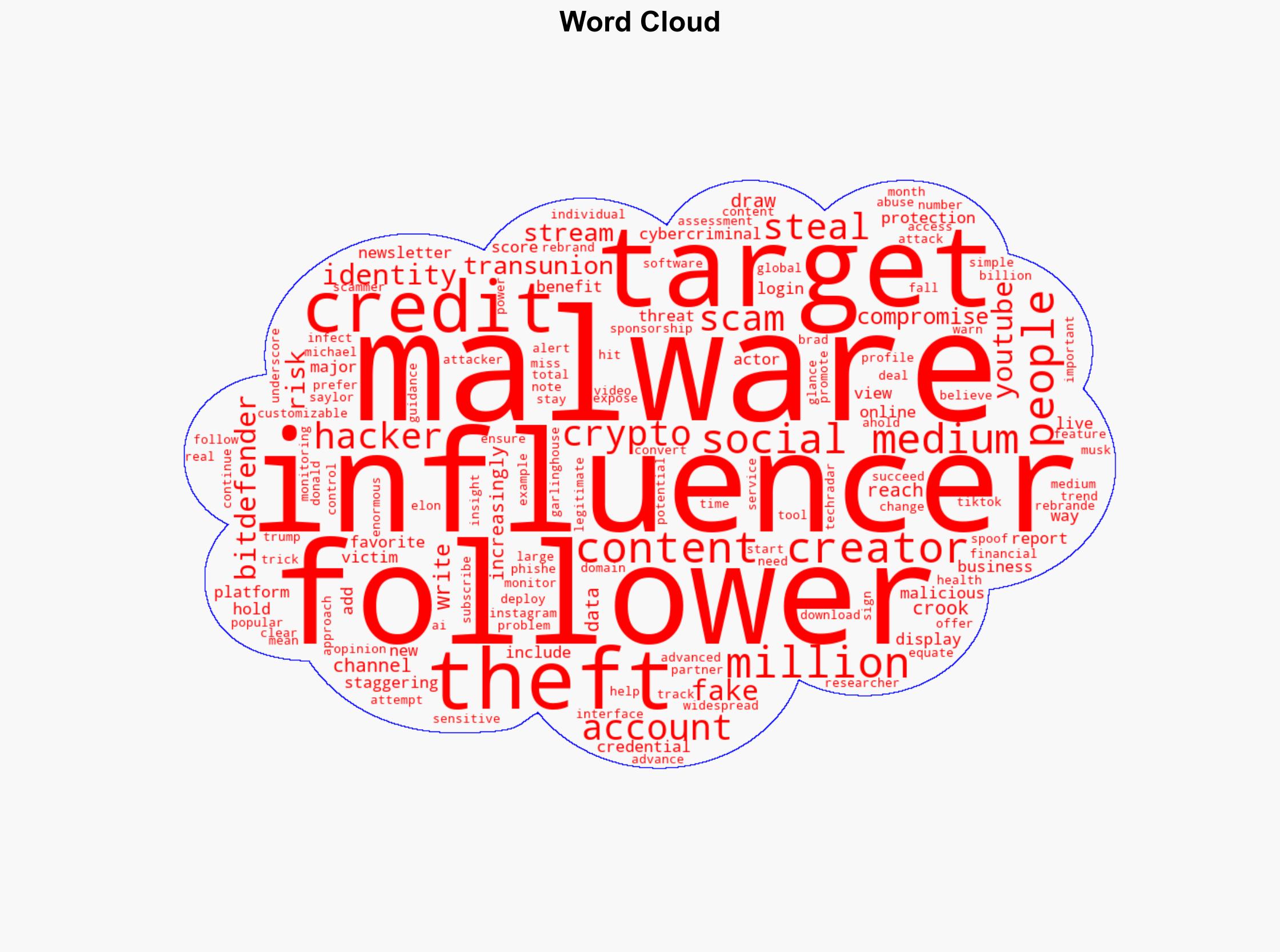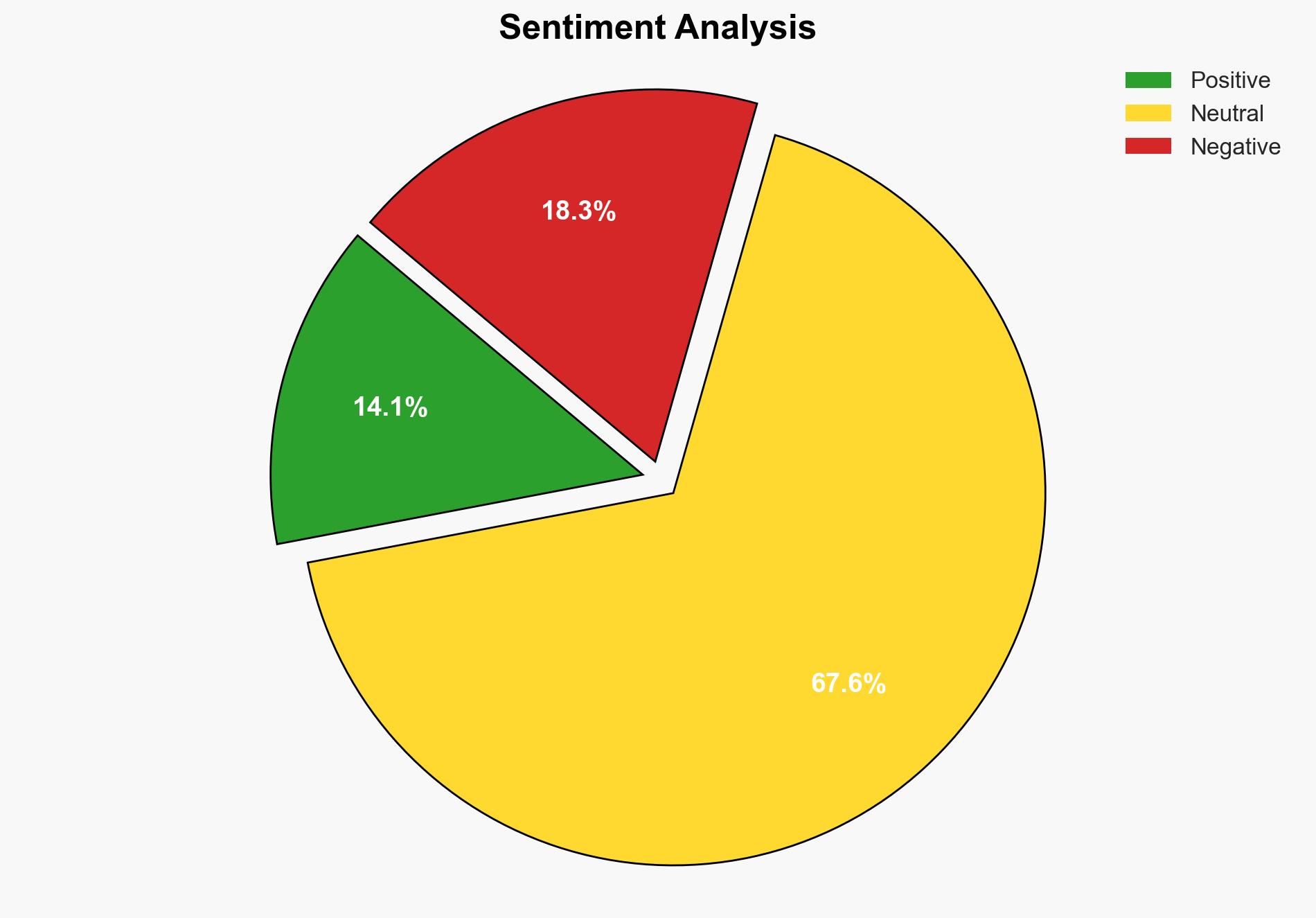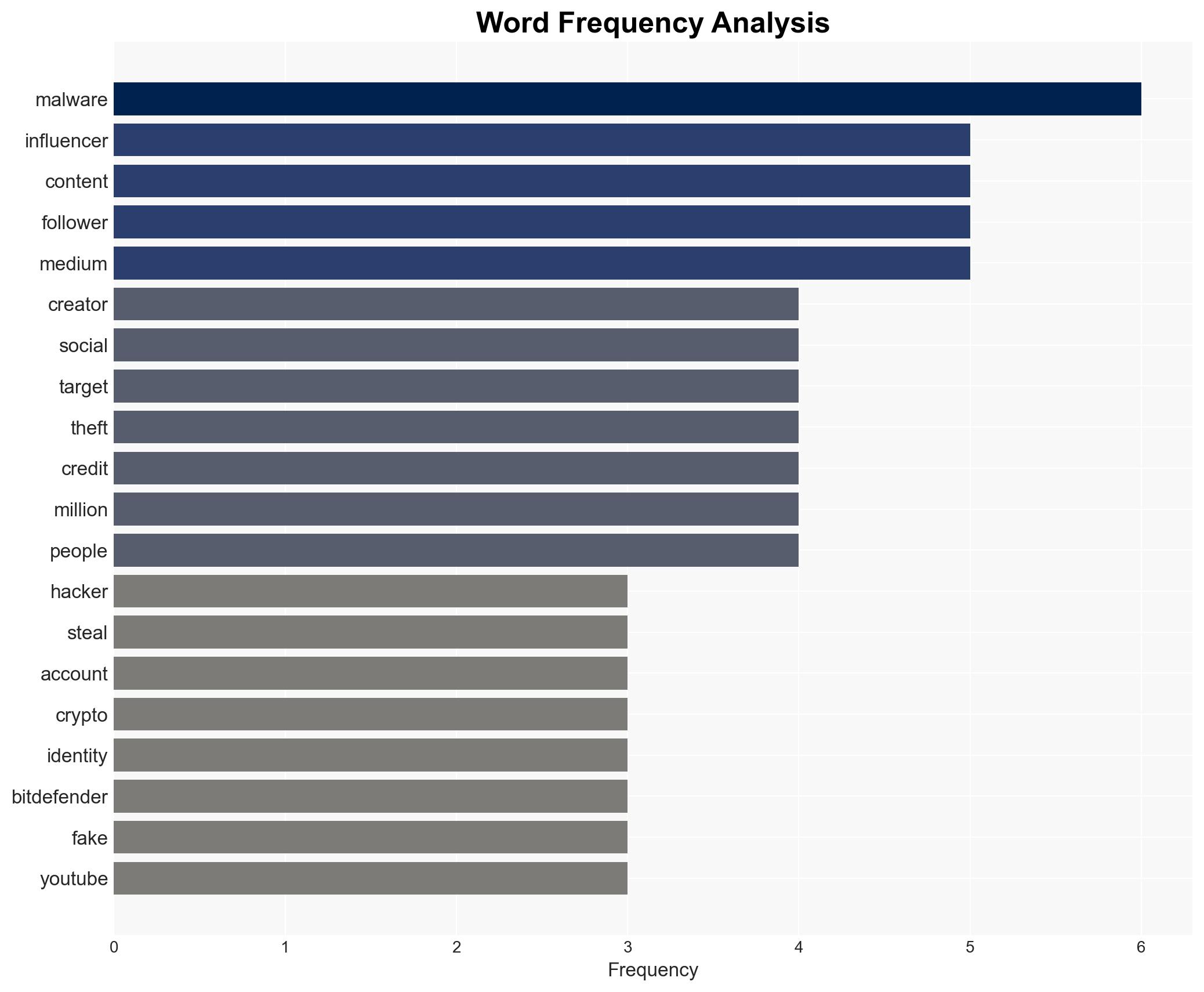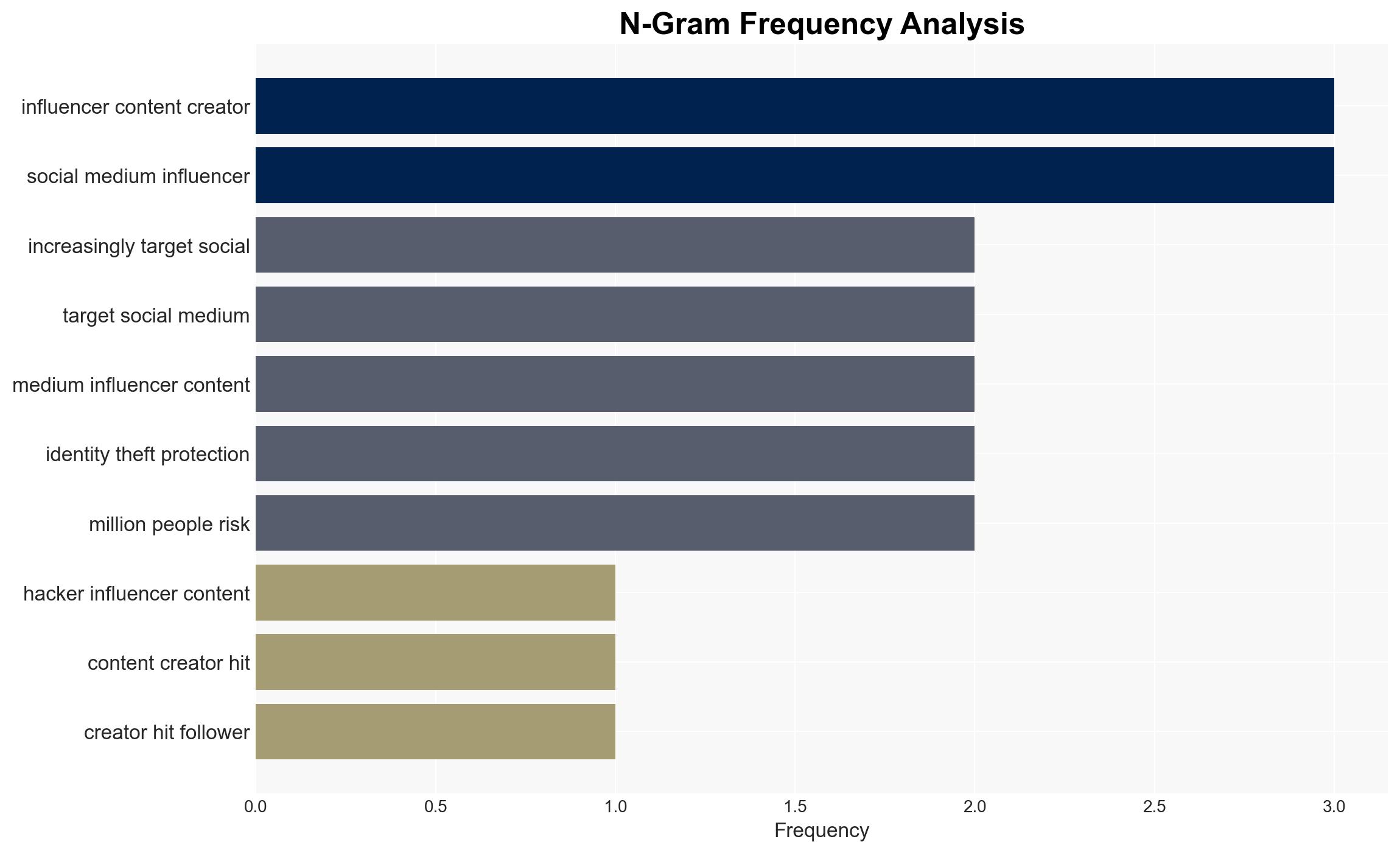Hackers go after influencers and content creators to hit followers with malware steal data – TechRadar
Published on: 2025-04-09
Intelligence Report: Hackers go after influencers and content creators to hit followers with malware steal data – TechRadar
1. BLUF (Bottom Line Up Front)
Hackers are increasingly targeting influencers and content creators on social media platforms to deploy malware and steal data from their followers. This trend poses significant risks to millions of users globally, as cybercriminals exploit the vast reach of these individuals to propagate scams and identity theft. Immediate action is recommended to enhance cybersecurity measures and awareness among influencers and their audiences.
2. Detailed Analysis
The following structured analytic techniques have been applied for this analysis:
General Analysis
Cybercriminals are leveraging the influence and reach of social media personalities to execute sophisticated phishing attacks. By offering fake sponsorship deals or advanced AI-powered video software, attackers trick influencers into downloading malware. This malware enables hackers to gain access to login credentials for platforms like YouTube, Instagram, and TikTok. Once compromised, these accounts are used to conduct fraudulent activities, such as rebranding channels to mimic well-known figures like Donald Trump, Elon Musk, Michael Saylor, and Brad Garlinghouse, to promote cryptocurrency scams.
3. Implications and Strategic Risks
The widespread targeting of influencers presents significant risks to national security, economic stability, and public trust in digital platforms. The potential compromise of accounts with millions of followers could lead to large-scale data breaches and financial losses. Additionally, the propagation of misinformation and scams could undermine public confidence in social media as a reliable communication channel.
4. Recommendations and Outlook
Recommendations:
- Enhance cybersecurity protocols for influencers and content creators, including the use of multi-factor authentication and regular security audits.
- Increase public awareness campaigns to educate followers on recognizing and avoiding phishing scams.
- Encourage social media platforms to implement stricter verification processes and monitoring for suspicious activities.
Outlook:
In the best-case scenario, increased awareness and improved security measures will reduce the effectiveness of these cyberattacks. In the worst-case scenario, continued exploitation could lead to significant financial and reputational damage for both influencers and their followers. The most likely outcome is a gradual adaptation by both influencers and platforms to mitigate these threats through enhanced security practices.
5. Key Individuals and Entities
The report mentions significant individuals such as Donald Trump, Elon Musk, Michael Saylor, and Brad Garlinghouse. These names are used by hackers to rebrand compromised channels and lend credibility to their scams.




